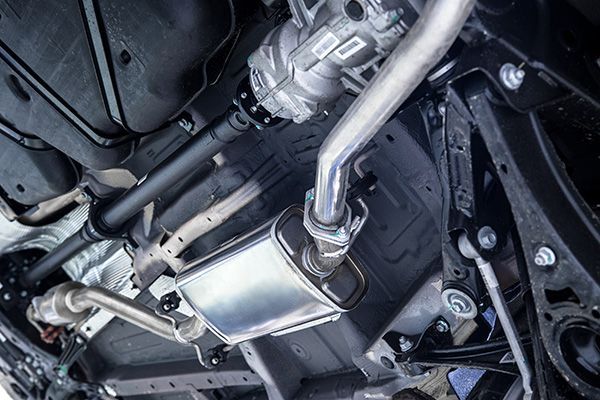.jpeg)
Oil leaks might seem minor, but ignoring them can lead to significant problems for your car. Whether it's a few drops on your driveway or a more noticeable loss of oil, these leaks could signal underlying issues that, if left unchecked, may compromise your engine’s health. So, how dangerous are oil leaks, and why should you address them immediately?
How Do Oil Leaks Affect Your Engine
Oil is the lifeblood of your engine. It reduces friction, prevents overheating, and ensures that the moving parts operate efficiently. When there’s a leak, your engine’s oil level drops, which can lead to serious damage.
Low oil levels reduce the lubrication between engine components, causing increased wear and tear. Over time, this can result in overheating, engine seizing, or even complete failure. If you’ve noticed signs of a leak, such as oil spots under your car or a burning oil smell, don’t ignore them. These are early warnings that your engine may be at risk.
The Fire Hazard Potential
An oil leak doesn’t just threaten your engine—it can also pose a fire hazard. When oil drips onto hot engine parts, such as the exhaust manifold , it can ignite. While this is rare, it’s not a risk you want to take. The combination of flammable oil and high temperatures can lead to dangerous situations, especially during long drives or in traffic.
Environmental Impact of Oil Leaks
Oil leaks aren’t just bad for your car—they’re also harmful to the environment. When oil seeps onto the ground, it can find its way into water sources and soil, contaminating the local ecosystem. In places like Colorado Springs, CO, where natural beauty is abundant, addressing oil leaks promptly helps preserve the environment.
Common Causes of Oil Leaks
Understanding what causes oil leaks can help you prevent them. Here are some typical culprits:
- Worn Gaskets and Seals: These components can wear out over time, leading to leaks around the valve covers or oil pan.
- Loose Oil Drain Plug: If the plug isn’t properly tightened after an oil change, it can become a source of leaks.
- Old or Damaged Oil Filter: A faulty oil filter can allow oil to seep out.
- Cracked Oil Pan: Hitting road debris or driving on rough terrain can damage the oil pan , causing leaks.
Addressing these issues during regular maintenance can help keep your car running at its best.
Why Timely Repairs Are Necessary
Ignoring an oil leak can lead to escalating problems. For starters, a minor leak can quickly turn into a major one, causing rapid oil loss. This not only jeopardizes your engine but also leads to higher repair costs.
Timely repairs ensure your car remains safe and reliable. Catching leaks early allows you to fix small problems before they turn into expensive headaches. It also helps maintain your vehicle’s resale value and extends its lifespan.
How to Spot an Oil Leak
Not sure if your car has an oil leak? Here’s what to look out for:
- Puddles or Spots: Oil leaks typically leave dark, greasy spots on your driveway or garage floor.
- Low Oil Levels: If your oil levels are consistently low between oil changes, a leak might be the cause.
- Burning Smell: Leaking oil that drips onto hot parts of your engine can produce a noticeable odor.
- Smoke from the Engine: This is a more severe sign that oil is leaking onto hot components.
What Should You Do If You Suspect an Oil Leak
The first step is to identify the source of the leak. While some causes, like a loose oil drain plug, can be fixed quickly, others may require professional attention. It’s always best to have a trusted auto repair shop inspect your vehicle.
If you’re in Colorado Springs, CO, and you’re concerned about an oil leak, don’t wait until it leads to more significant damage. Getting expert help ensures the issue is resolved correctly, giving you peace of mind on the road.
Don’t let an oil leak put your car or safety at risk. Visit LightHouse Automotive in Colorado Springs, CO, for a professional inspection and reliable repair service. Schedule your appointment today and protect your engine from costly damage!










